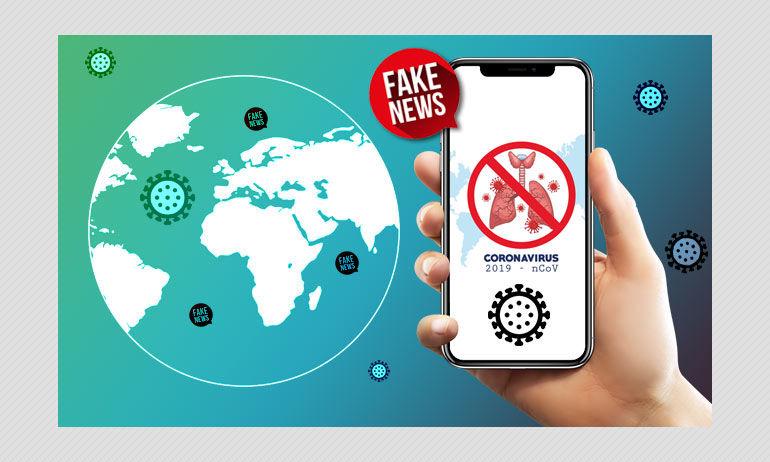Growing Perils of Falsehood amidst COVID-19
The COVID-19 pandemic continues to spread across the globe and its perils seem to be far from over. Simultaneously, the world has also been witnessing an exponential increase in disinformation about the virus itself. Article 3 and 19 of the U.D.H.R. guarantee Right to Life and the Right to Receive Information respectively. Disinformation which is outlawed expressly or impliedly across the world violates them both. The Right to Receive Information is frustrated if everything we receive is cluttered with disinformation.
Disinformation is also a threat to Right to Health guaranteed under Article 12 of I.C.E.S.C.R. as false information about medication and vaccines can deter people from taking necessary healthcare decisions. For instance, reports suggest that the prime reason for the Ebola virus becoming so catastrophic in West Africa was the amount of disinformation spread about the disease.
The U.N.S.G. Antonio Guterres while launching the U.N. COVID-19 Communications for Solidarity Initiative, has himself cautioned that “our enemy is also the growing surge of misinformation.”
The WHO has described “infodemic” meaning an overabundance of unreliable information, to be a “second disease” accompanying COVID-19. False information that is in circulation can be categorized as both misinformation (false news spread without malicious intentions) and disinformation (false news spread with malicious intent). However, in the context of COVID19 both are equally deadly and are being spread at equal velocity, per the two recent policy papers of UNESCO.
Other available statistics on the trend of the spread of disinformation during COVID also point to a concerning scenario. Newsguard has recognized 191 websites in North America and Europe that have published false information relating to the virus while the Reuters Institute report from six different countries shows that almost one-third of social media users have reported seeing false news about coronavirus in the past two months. Similarly, in March, almost 40 million problematic posts were identified on Facebook related to COVID-19 while 38% tweets about coronavirus analyzed using AI by Blackbird.AI were labeled as “manipulative content”.
Another appalling concern is that most of these “infodemic” are being spread by influential actors and have themes related to hate speech, racism and xenophobia that deeply affect emotional content.
Analyzing the Measures taken by Technology Companies
The tech companies have been swift in taking action against such spreaders, at a faster rate than before. In March, Google, Microsoft, Reddit, Twitter, Facebook and YouTube issued a joint statement to express their commitment towards fighting misinformation related to coronavirus.
Social networking sites and search engines have deployed four major mechanisms to combat disinformation. Content moderation which involves removing or labelling COVID19 disinformation using AI-empowered automated systems has been the first line of defence.
Directing users to official health information by partnering with national public health and international organizations like WHO has been another effective measure. Empowering fact-checkers and journalists with donations has also helped. Google has directed $6.5 million to Journalism Emergency Relief Fund in 130 countries while WhatsApp and Twitter have contributed $1 million each to International Women’s Media Foundation and International Fact-Checking Network respectively. Lastly, altering advertising policies by Facebook and Google who have banned ads that promote miracle cures of coronavirus has been an important step. WhatsApp too has put a ban on any information that contradicts WHO on COVID-19 while Twitter is only allowing brands with a direct relationship with its ads team to advertise on the pandemic.
Evaluating the Sufficiency of Measures and Way Forward
Online activist network Avaaz has revealed that 41% of misinformation brought to the attention of Facebook continued to remain up. Similarly, the Reuters Institute reported that 59% posts on Twitter and 27% on YouTube rated ‘false’ by fact-checkers continued to remain online.
Per the judgement of E.C.H.R. in Delfi v. Estonia, austere measures need to be taken to combat falsehood. It is paramount that intermediaries ensure that their actions align with International Human Rights standards. While ensuring that their platform does not become an arbiter of truth, they can still take stern measures to combat disinformation in their content and search services. A “cocktail approach” should be adopted consisting of systematic initiatives alongside individual efforts. The State should maintain open-source data (in accordance with privacy standards) of all
Pandemic related information. Possibly, this data should be available in all official languages for better reach and regular public briefings should be conducted. At an individual level, the “Think Twice” mantra propounded by several Public Health Research Centres can be helpful to avoid “confirmation bias”. Before forwarding any message one must ask herself: “is it truthful; how does it help; does it inspire and is it necessary”. Awareness about disinformation and prosecution for its malicious dissemination is the key to tackle this infodemic.
